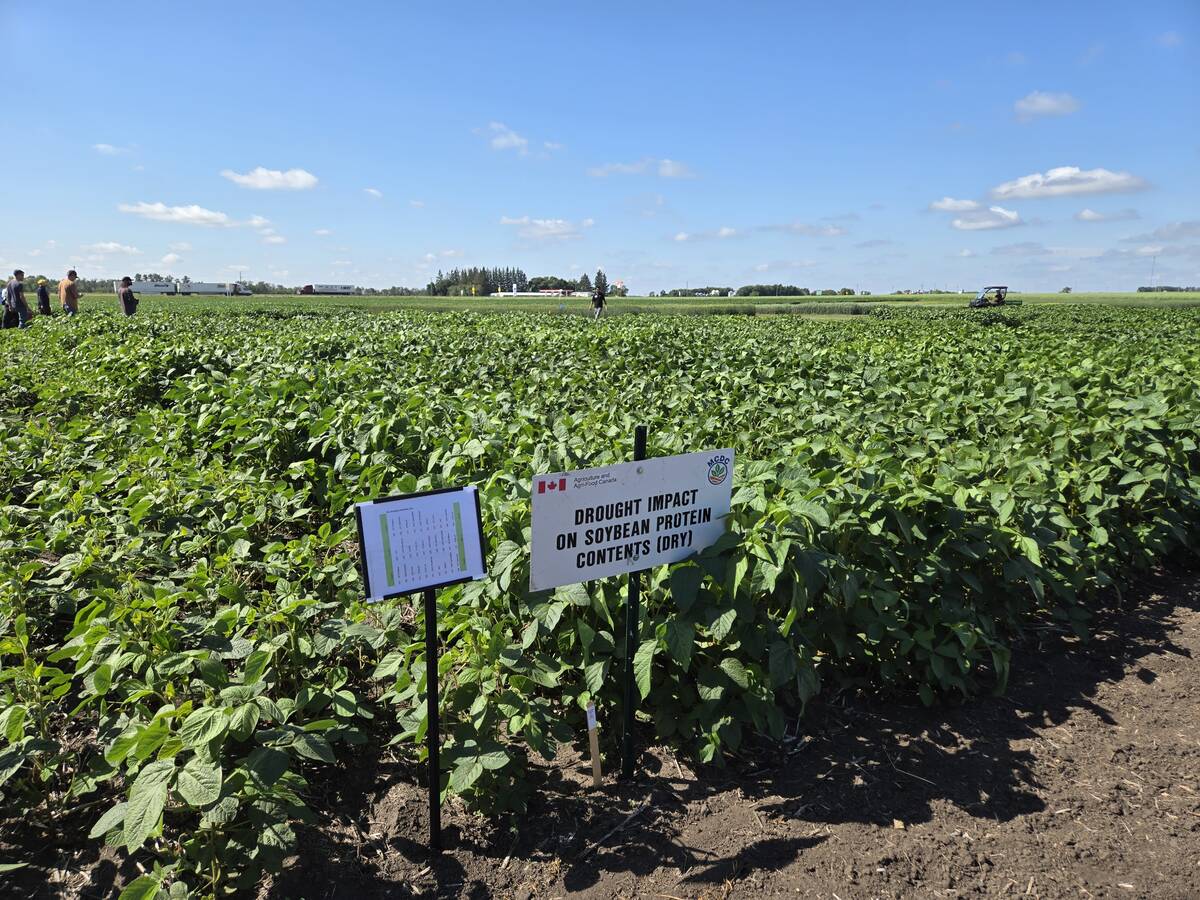After losing $28 million, the Saskatchewan government is getting out of the potato business.
Crown Investments Corp. minister Maynard Sonntag announced Dec. 14 that Saskatchewan Valley Potato Corp. had sold two of six storage facilities and would seed fewer acres next year as it phases out operations.
“Our government’s goal from the start has been to get out of the potato business by selling assets to growers as the industry developed,” Sonntag said.
Barrich Farms Ltd. of Outlook paid $1.6 million for a storage shed in Broderick worth $2.7 million.
Read Also

Carberry field day looks for agriculture solutions
Manitoba farmers explored research solutions for resilient crops, perpetual agronomic issues and new kinds of agricultural products at a field day at the Manitoba Crop Diversification Centre in Carberry on Aug. 6.
Pak-Wel Produce, which already owned the fresh pack plant at Lucky Lake, bought the storage facility there for $2.75 million. It is worth $4.2 million.
SVPC will take a write-down of $14 million on the facilities. That will push the company’s loss for 2001 to $16 million, and create total losses since 1997 of $27.9 million.
“Proceeds from these sales will improve SVPC’s financial picture and in the next two years we expect it will make a profit and pay down its debt by over $5 million,” Sonntag said.
SVPC will lease or accept reasonable offers on the company’s remaining sheds in Broderick, Tullis and Riverhurst.
As well, SVPC will seed only 400 acres in 2002, down from 1,266 last year. The following year it will seed 270 acres and be completely out of production by 2004.
The government will remain involved in the industry through new market development, equipment rental and provision of agronomic expertise.
Sonntag called the venture successful.
In the mid- to late-1990s, the government constructed six state-of-the-art storage facilities to spur an irrigation-based potato industry.
Previous governments had already spent about $200 million building Gardiner Dam, Lake Diefenbaker and an extensive irrigation system.
Through Spudco, a division of Sask Water, the government built the facilities and began planting seed potatoes.
But the venture was characterized by financial losses.
The government last year transferred Spudco’s assets from Sask Water to CIC and Saskatchewan Valley Potato Corp.
Sonntag said governments don’t always expect to make money from investments in infrastructure, such as highways or storage buildings. But he said some of the province’s $23 million investment would be recouped by selling the sheds.
And he said the benefits of diversifying agriculture will be long lasting.
“I think it has been largely successful,” he said.
Saskatchewan Party critic Brad Wall said the venture could never be characterized that way.
“If this was a success, I don’t think we want to see this government fail at anything. This has been an unmitigated disaster for Saskatchewan taxpayers.”
He called for a public inquiry into the losses.
Tom Hyland, president of the Saskatchewan Seed Potato Growers Association, said the government’s involvement did boost acreage.
In the early 1980s, seed potato acreage fluctuated between 280 and 580 acres. By 1995 the industry had grown to 1,500 acres.
“We’re at 5,000 now,” he said. “And there’s another 2,500 to 3,500 (acres) of table potatoes.”
Hyland said no private company or individuals could have built the storage sheds.
Still, Hyland said the government is probably better off providing advice than being an active player.















